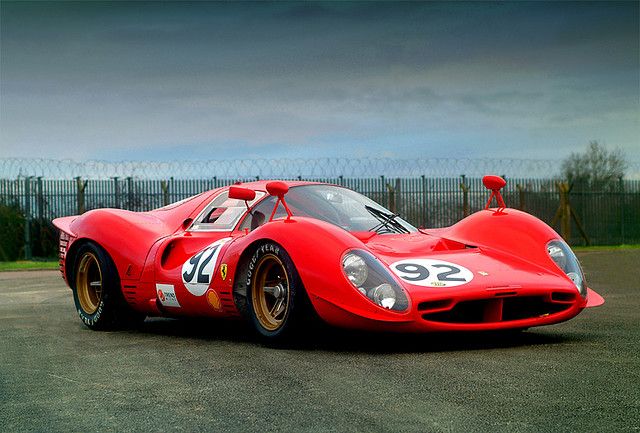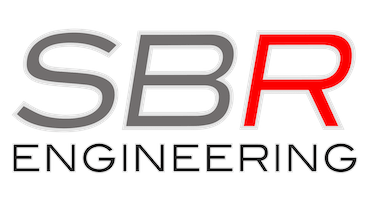
The evolution of the 330 P2 was the P3. It featured a new tubular chassis with a fiberglass drivers compartment tub. The engine and gearbox were an integral part of the structure, enhancing its rigidity as in previous versions. Compared to the power unit used on the P2, the V12 engine was almost 30 kg lighter thanks to redesigned cylinder heads, and a new Lucas injection system in place of the usual row of 6 Weber carburettors.
The car’s most important wins were racked up by Parkes/Scarfiotti at Spa and by Surtees/Parkes at the 1000 km of Monza.
Ferrari 330 P3 Technical Specifications
ENGINE
| Type | rear, longitudinal 60° V12 |
| Bore/stroke | 77 x 71 mm |
| Unitary displacement | 330.62 cc |
| Total displacement | 3967.44 cc |
| Compression ratio | 10.5 : 1 |
| Maximum power | 309 kW (420 hp) at 8000 rpm |
| Power per litre | 106 hp/l |
| Maximum torque | – |
| Valve actuation | twin overhead camshaft per bank, two valves per cylinder |
| Fuel feed | Lucas indirect injection |
| Ignition | twin spark plugs per cylinder, two coils |
| Lubrication | dry sump |
| Clutch | multi-plate |
| Frame | tubular steel |
| Front suspension | independent, unequal-length wishbones, coil springs, telescopic shock absorbers, anti-roll bar |
| Rear suspension | independent, unequal-length wishbones, coil springs, telescopic shock absorbers, anti-roll bar |
| Brakes | discs |
| Transmission | 5-speed + reverse |
| Steering | rack-and-pinion |
| Fuel tank | capacity 114 litres |
| Front tyres | 5.50 x 15 |
| Rear tyres | 7.00 x 15 |
Ferrari 330 P3 Valuation
The Ferrari 330 P3 is extremely rare and valuable, with only three chassis originally built in 1966—all for factory racing purposes. Due to its rarity, historical importance, and direct involvement in Ferrari’s works racing program (notably at Le Mans and Daytona), the 330 P3 is considered one of the crown jewels of Ferrari’s prototype lineage.
When such a car becomes available—which is exceedingly rare and often done privately—estimated values range from $20 million to over $30 million, depending on factors like:
-
Originality (e.g. unmodified chassis and bodywork)
-
Race history (factory entries at major events)
-
Provenance and ownership history
-
Restoration quality (if applicable)
Many 330 P3s were later converted into 330 P4 specifications, so unrestored, pure P3 examples are particularly valuable.
